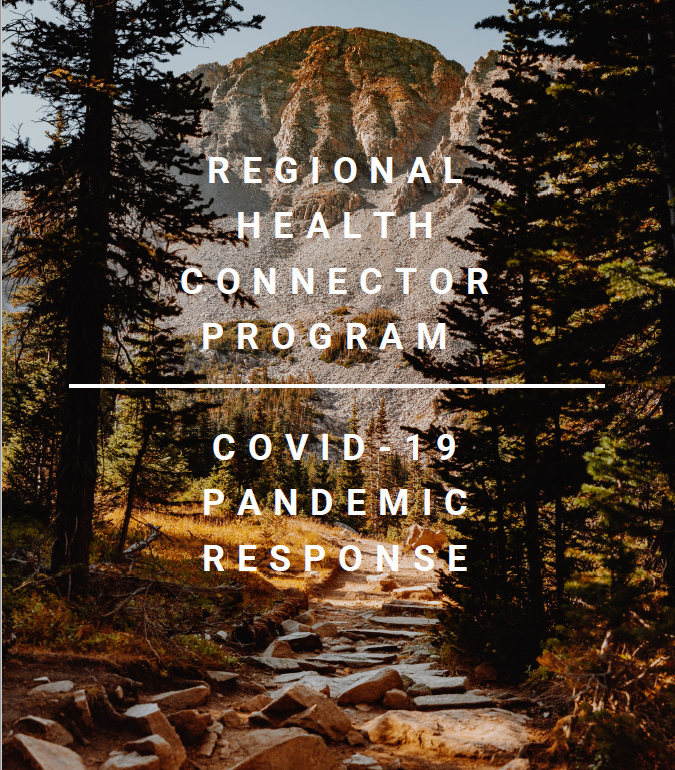Regional Health Connector COVID-19 Response Summary
Beginning in April 2020 as the impacts of COVID-19 increased across the state, the RHC evaluation team began surveying RHCs on a regular basis to understand how their work as a critical workforce in this area has been affected by and responded to the pandemic. Conducted through December 2020, the results of this survey come from the RHC workforce across the 21 Colorado Health Statistics Regions.
Regional Health Connectors (RHCs) are a workforce in Colorado that strive to build and improve connections between primary care, public health and community organizations throughout Colorado. Over the course of2020 as the COVID-19 pandemic has exacerbated existing community needs and led to the emergence of new ones, RHCs have continued their critical role in developing and maintaining connections across sectors while responding to the pandemic, navigating a changing landscape for healthcare and service provision and addressing increased social needs to serve partners and community members in their regions.
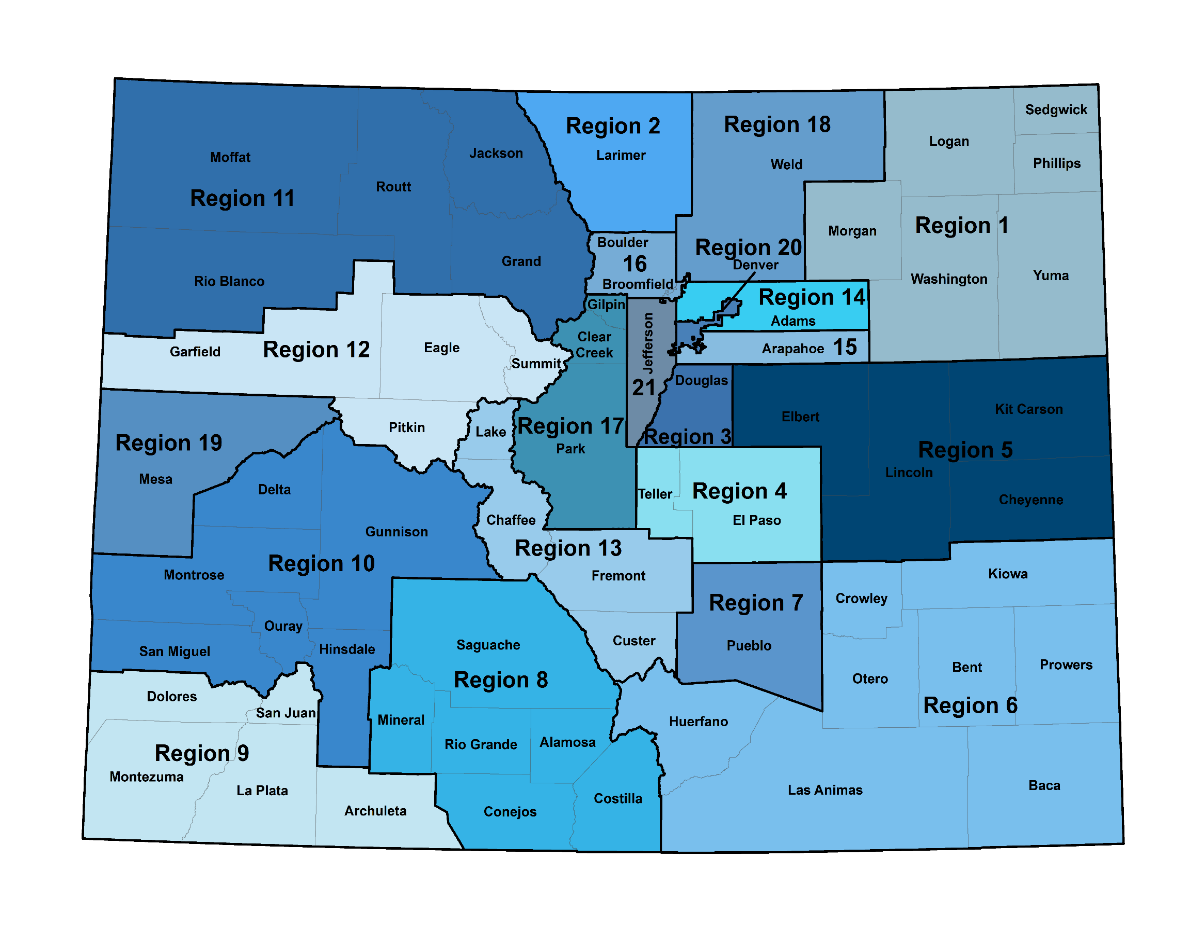
Major Findings
Social and economic barriers to health and related social needs were among the most common community and primary care issues that RHCs supported during the surveyed timeframe
Existing health inequities were exacerbated by the COVID-19 pandemic, evidenced by a lack of housing options for those experiencing housing insecurity and a heightened need for childcare, respite care services, and rental, utility, and financial assistance among community members.
RHCs were well-positioned to provide critical support to local emergency response efforts
RHCs have played a critical role in local COVID-19 response efforts. Over the course of the pandemic, RHCs have coordinated COVID-19 testing efforts and connected community organizations and members to testing sites; assisted with contact tracing; connected healthcare practices with personal protective equipment; and continue to support vaccine distribution.
RHCs connected partners to resources to assist with community needs.
Fulfilling a core function of their work, RHCs have connected primary care practices with local behavioral and mental health resources in addition to launching online COVID-19 resource lists for health clinics, hospitals, and communities.
Regional Needs
Over the course of 2020, RHCs have addressed the following community, primary care, and public health needs in their region.
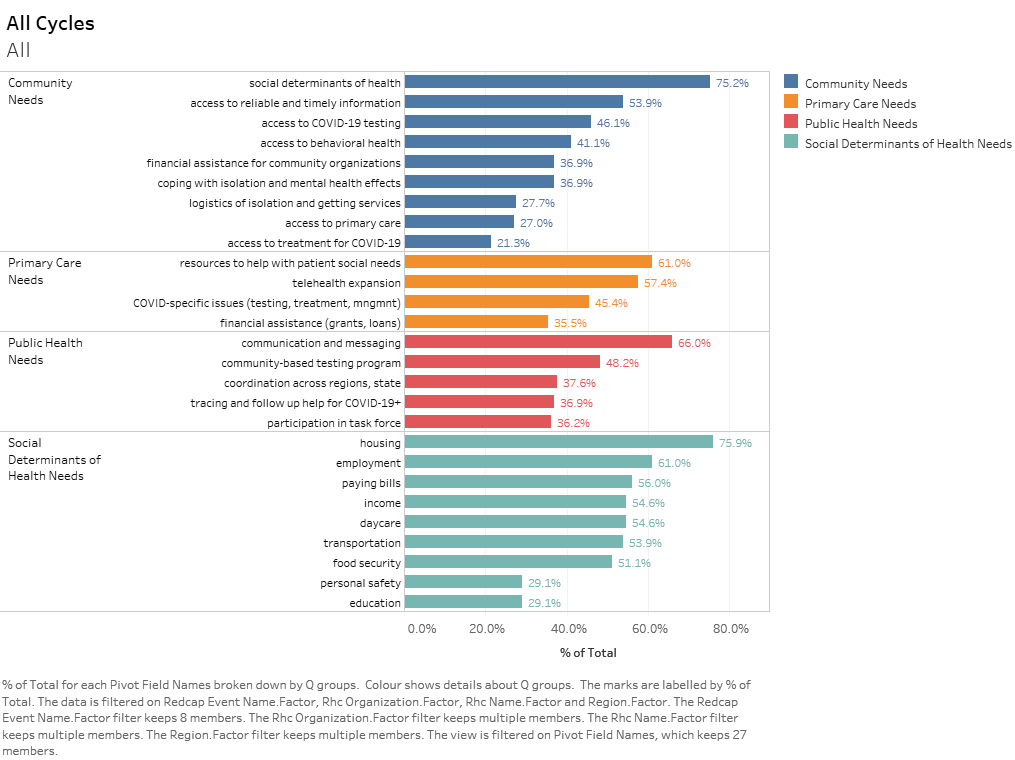
“In conjunction with the local health department, we implemented a FREE COVID-19testing event at a community organization. We tested 85individuals for COVID and provided 85 swag bags with essential health items for COVID prevention such as masks, hand sanitizer, thermometer, toothbrushes, and school supplies.”
– Regional Health Connector on local COVID-19 testing efforts
Populations Served
RHCs worked with numerous underserved populations over the course of 2020, either directly or with partners to address the needs of each group.
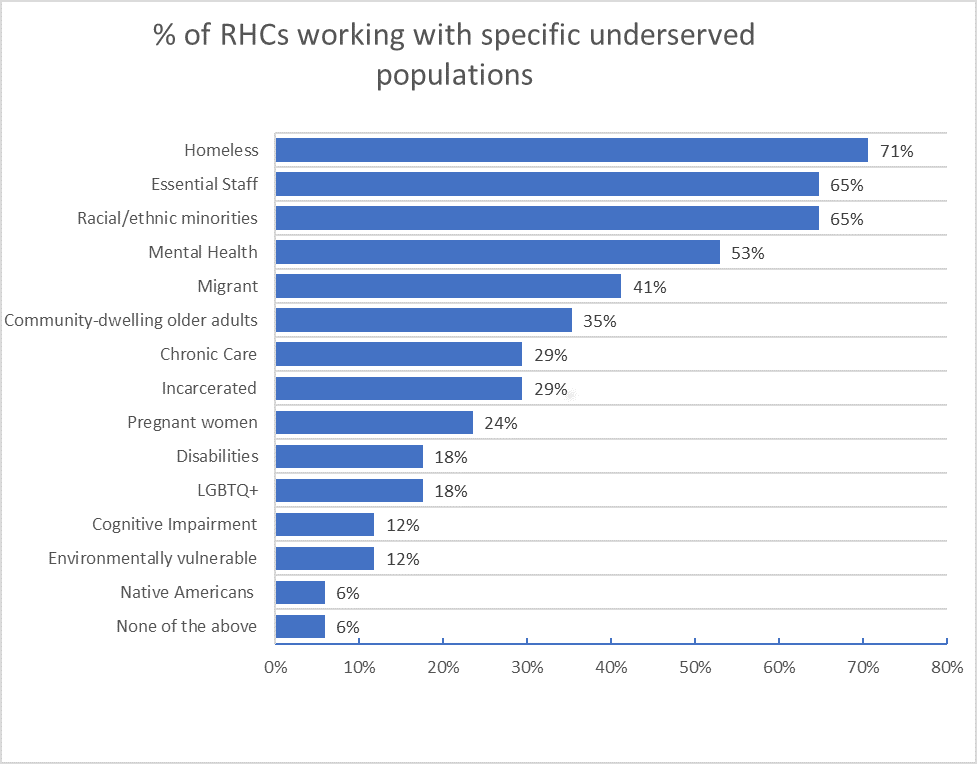
“The closing of respite centers increased concerns expressed from winter shelter networks who are expecting limited capacity due to physical distancing during COVID, increased need due to economic situations during COVID, and an impending cold weather season with more people needing to move indoors”
– Regional Health Connector on finding housing and shelters for elderly with chronic conditions and people experiencing homelessness to prevent COVID outbreaks
Action & Impact
As the pandemic continues into 2021, RHCs have resourcefully worked to meet the needs of partners and community members by directly supporting COVID-19 emergency response efforts as well as addressing the existing social barriers to health that have been exacerbated by the pandemic.
RHCs have responded by:
Supporting Local COVID-19 Response Efforts & Frontline Workers
- Connecting healthcare and human service providers with personal protective equipment during the early stages of the pandemic
- Working to identify and connect community members to COVID-19 testing sites
- Directly assisting with COVID-19 testing, contact tracing and planning and distribution of COVID-19 vaccines
Addressing Social Needs
Through resource information sharing with partners and direct provision of services, RHCs have helped to address numerous social needs of individuals in their regions. These efforts have included:
- Supporting individuals experiencing homelessness by providing showers, food assistance and contributing to the development of a new men’s and women’s shelter
- Connecting local organizations and community members to rental, utility, and financial assistance
- Hosting Zoom meetings with providers aimed at increasing communication between public health and healthcare partners with the goal of information sharing to ensure providers can confidently respond to patient needs
- Providing an updated screening tool to local clinics to assist with identification of individuals in need of social resources
Supporting Access to Healthcare Coverage
RHCs participated in outreach and collaboration with local agencies and organizations to promote health insurance enrollment while also providing information to support patients without health insurance.
Key Outcomes Observed
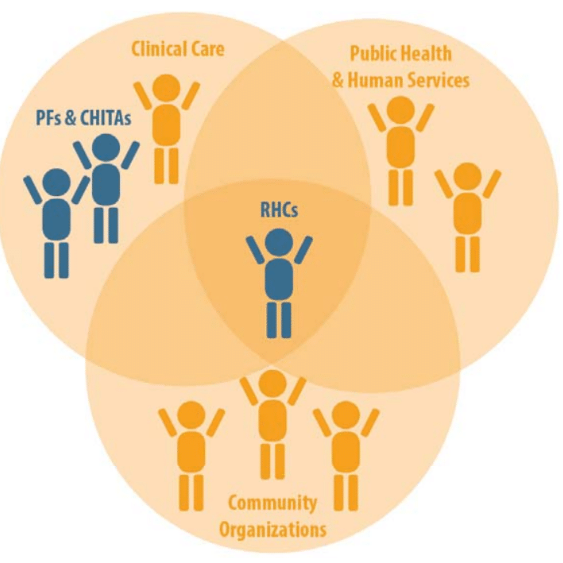
Changes in Communication
- RHCs reported an increase in remote online communication via Zoom, email and social media
Strengthened Relationships
- RHCs reported more frequent communication across all partners due to rapid changes in available resources
Improved Collaboration
- RHCs reported an increase in deliberate outreach and engagement to maintain relationships and additional networking to new groups where previous partnerships waned due to decreased in-person meetings
Provision of Resources to Partners & Community Members
In addition to the actions cited above, RHCs supported partners and community members through:
- Launching online COVID-19 resource lists for local recovery efforts for health clinics, hospitals and communities
- Performing family outreach for food distribution, school supplies and monetary funds with partners
